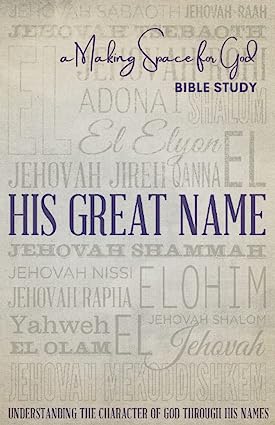This week will be working through Chapters 5 and 6 of Joann Ellison’s His Great Name. I will try to stick closer to the book for our discussion on Tuesday. The two names of God we are exploring this week are “Adonai” and “Jehovah-jireh.”
The name “adonai” derives from the Hebrew word “adon” meaning “lord” or “master.” For example, when Abraham asked the Hittites for a place to bury Sarah, they responded: “Hear us, my lord (adon), you are a mighty prince among us.” Gen. 23:6. The word Adonai is the superlative or emphatic form of adon, and is used in the Hebrew Scriptures to refer exclusively to the Divine. The word is used more than 400 times as a reference to God. As we looked at last week, however, when the Hebrew uses “Jehovah/Yahweh,” the English translation uses “LORD” (using small uppercase letters). And therefore, whenever the English Bible reads “LORD” it means “Jehovah/Yahweh” and when the English Bible reads “Lord” (using lowercase letters) it means “Adonai.” For example, the English translation of Exodus 4:10 reads: “But Moses said to the LORD (Yahweh), ‘Oh, my Lord (Adonai), I am not eloquent . . . .’” The problem arises when the Hebrew Scriptures use both words together: “Abram asked, ‘Adonai Yahweh, what will you give me?’” Gen. 15:2. In that situation the English translation for “Adonai Yahweh” is “Lord GOD.”
As we study the names of God, the most significant name of God for Christological purposes is “Adonai” or Lord. In the Hebrew Scriptures, God is Lord. The New Testament writers, however, proclaim that Jesus is Lord. cf. Rom. 10:9. Therefore, when the New Testament refers to Jesus as “Lord,” it is making a clear statement concerning the divine authority, if not the divine nature, of Jesus. If Jesus is Lord then Jesus is God. Hopefully, when you read the verses cited by Ellison, you will see that the nature of the relationship between the Lord and his people is different as we more from the Hebrew Scripture into the New Testament. Specifically, if you compare Isaiah 6:1 and John 13:14 notice the difference in the concept of “Lord” between the Old and New Testament, and particularly the source and nature of divine authority.
You have seen it, O Yahweh.
Psalm 35:22-24
Do not remain silent.
O Adonai, do not be so far away from me.
Wake up, and rise to my defense.
Plead my case, O my Elohim and my Adonai.
Judge me by your righteousness, O Yahweh my Elohim.
Do not let them gloat over me.

